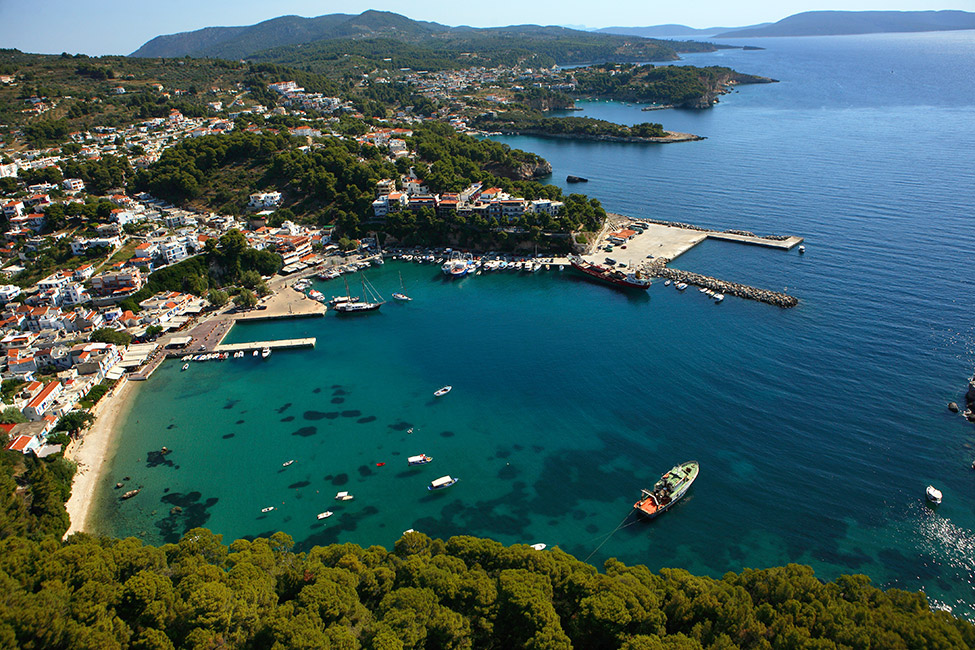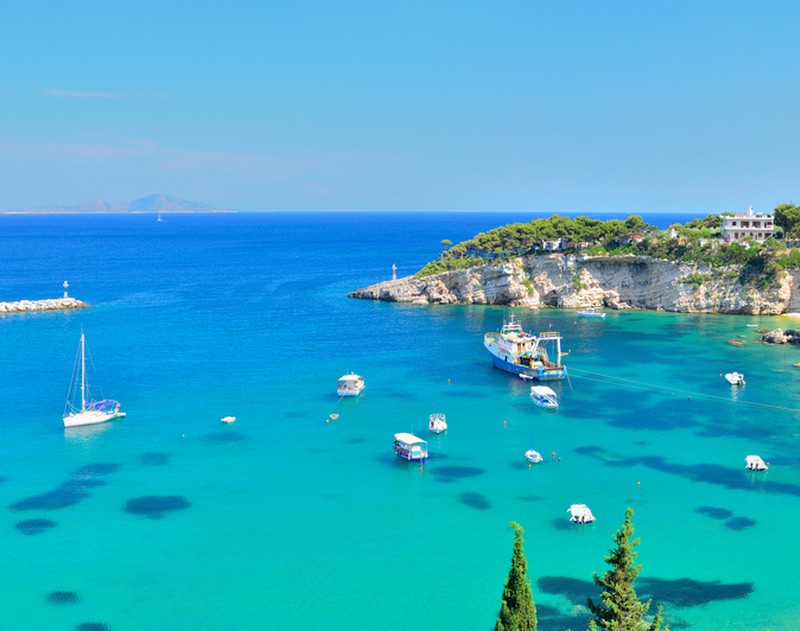Registration has now begun for the EU-funded ODYSSEA project’s second summer school session, focusing on Oceanography and Fisheries in the Mediterranean, on September 2-6, 2019, on the Greek island of Alonissos, located in the Aegean Sea’s Northern Sporades archipelago, building on the success of last year’s ground-breaking ODYSSEA summer school.
The summer school is being co-organised in partnership with the School of Biology at the Aristotle University of Thessaloniki and the Department of Environmental Engineering at the Democritus University of Thrace, and with the support of the Thalassa Foundation.
“The 2nd ODYSSEA Summer School introduces trainees to all stages of operational oceanography and fisheries, aiming towards the Blue Growth of the Mediterranean Sea,” said Prof. Georgios Sylaios from DUTH, who coordinates ODYSSEA.
Organisers noted the importance of monitoring and forecasting phenomena related to the marine environment, as well as the challenges faced by oceanographers in doing so, due especially to climate change and the rising intensity of human coastal activities and their impacts (pollution, extensive fishing and aquaculture, coastal erosion, over-exploitation by tourism) over the past several decades.
“The protection and sustainable economic exploitation of marine ecosystems requires real-time monitoring and operational prognostic modelling. In parallel, the volume of data concerning the marine environment collected both by satellites and on-site monitoring instruments is enormous and can be categorized as ‘Big Data’,” added Prof. Sylaios. “All these data need to be retrieved, processed, interpreted and then fed into numerical models for reanalysis and forecasting.”
Participation in the summer school is intended for oceanographers and biologists, as well as young researchers, PhD students and professionals, who are interested in learning how to manage the available data on the marine environmental, oceanographic and fisheries, and how convert the date into targeted and understandable information provided to the relevant end-users.
The modules to be included in the summer school are:
- Introduction to Operational Oceanography
- Modern marine instrumentation and sensors
- Sampling and surveying
- Fisheries stock assessment and management
- Marine ecological modelling
After the 2nd ODYSSEA Summer School, the trainees will:
- Understand the basic concepts of oceanography and fisheries science
- Know how to use the ODYSSEA project platform for retrieving, managing and processing oceanographic, environmental and fisheries data of the Mediterranean Sea
- Know how to retrieve and use oceanographic datasets and explore international databases on the marine environment
- Learn about the latest developments in marine instruments and sensors used in field sampling for operational oceanographic monitoring
- Be able to assemble fisheries data and monitor marine mammal populations
- Understand fisheries reference points and main stock assessment models and their applicability in fisheries management
- Make use of ecological models and their role in marine ecosystem management
Further details regarding the summer school’s content and lecturers, as well as logistical arrangements, is available here. Applications are welcome until July 1st.



